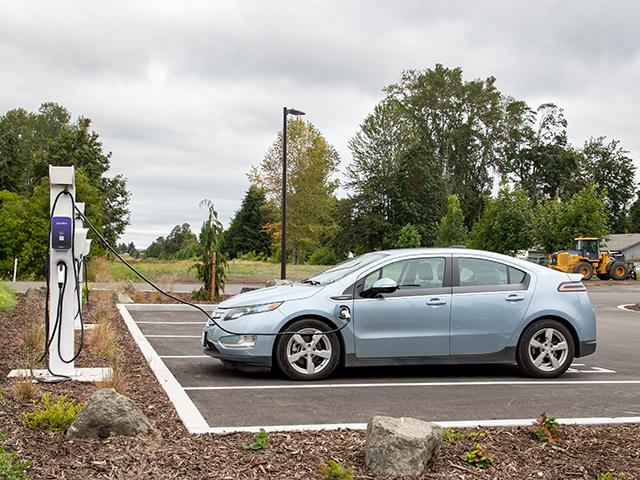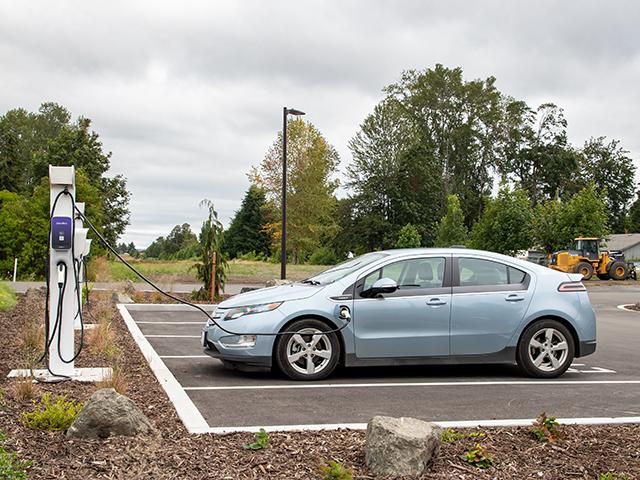Ethanol Blog
Ag, Biofuels Groups Join Broad Coalition Against Biden Tailpipe Emissions Standards
LINCOLN, Neb. (DTN) -- Agriculture and biofuels groups joined several other industries in challenging the Biden administration's tailpipe emissions rule that essentially mandates the use of electric vehicles.
The rule finalized by the U.S. Environmental Protection Agency has been challenged in the U.S. Court of Appeals for the District of Columbia Circuit.
At the end of last week agriculture groups and many other industries filed a brief in the case asking the court to reverse the rule.
Those groups include the Renewable Fuels Association, National Farmers Union, the American Farm Bureau Federation, the National Association of Convenience Stores, 14 state and national corn grower associations, numerous auto dealers, organizations representing trucking and shipping companies, manufacturing groups, energy trade associations, organized labor groups and other parties.
The groups allege the rule is arbitrary and capricious because it would phase out liquid-fueled engines and essentially require the use of electric vehicles to meet the standards.
"The court should reverse EPA's rule," according to the brief.
The groups told the court that EPA projects at least 68% of new vehicles will need to be electric to comply with the standards by 2032.
"EPA seeks to radically transform the nation's vehicle fleet by effectively mandating a nationwide transition from internal-combustion-engine vehicles to electric vehicles," the brief said.
P[L1] D[0x0] M[300x250] OOP[F] ADUNIT[] T[]
"That bold assertion of regulatory power vastly exceeds EPA's statutory authority. The Clean Air Act does not clearly authorize EPA to force Americans to buy electric vehicles."
According to the brief EPA "unreasonably treats electric vehicles as though they contribute zero emissions" and "arbitrarily refuse[d] to consider viable and obvious alternatives for reducing emissions from transportation."
Specifically, the brief said "EPA refused to even consider renewable fuels as an alternative to its push for electrification, unreasonably deeming those issues outside the scope of its rule. Higher-octane fuels, biofuels and flex-fuel vehicles are a documented solution to the issue of pollution from vehicle emissions."
EPA likewise failed to consider how its tailpipe standards conflict with Congress's Renewable Fuel Standard, according to the brief.
EPA's tailpipe standards rule "conflicts with Congress's mandate to increase the nation's use of renewable fuel," the brief said.
"No law authorizes the federal government to mandate the sale of electric vehicles," the groups said in the brief.
"So in 2021, EPA began reverse-engineering a de facto electric-vehicle mandate. It did so by setting greenhouse-gas emission standards for light-duty vehicles that were so stringent that automakers could meet them only by decreasing production of internal-combustion-engine vehicles and dedicating an increasing percentage of their fleets to electric vehicles."
The groups said there is not some "great mystery" behind consumer choice.
"In short, consumers and manufacturers are not irrational; they just do not value fuel economy above all else, as EPA apparently thinks they should," the brief said.
In a news release, RFA President and CEO Geoff Cooper said his group shares the Biden administration's vision of reducing carbon emissions.
"EPA's tailpipe rule is clearly the wrong way to pursue that goal and the agency obviously overstepped its authority," Cooper said.
"EPA's rule effectively forces automakers to produce more battery electric vehicles based on the false premise that they are somehow 'zero-emission vehicles.' At the same time, the regulation strongly discourages manufacturers from pursuing other clean transportation technologies like flex-fuel vehicles and low-carbon renewable fuels. EPA ignored the fact that high-octane ethanol and advanced internal combustion engines could achieve superior environmental performance at a lower cost to American consumers."
Read more on DTN:
"Studies: Low-Carbon Fuel Standard, Flexible Fuel Vehicles Reduce More GHG Emissions Than Electric Vehicles," https://www.dtnpf.com/…
Todd Neeley can be reached at todd.neeley@dtn.com
Follow him on social platform X @DTNeeley
(c) Copyright 2024 DTN, LLC. All rights reserved.






Comments
To comment, please Log In or Join our Community .